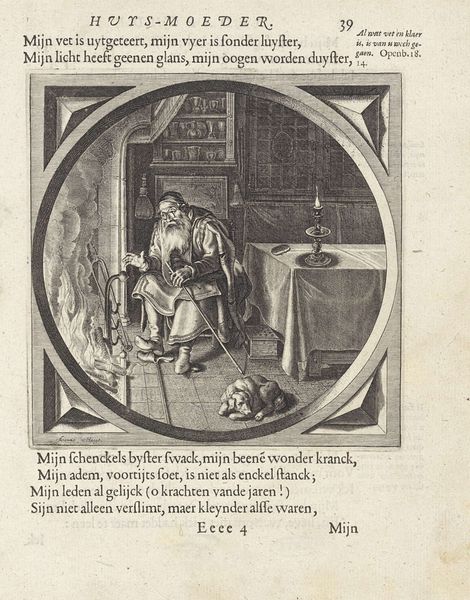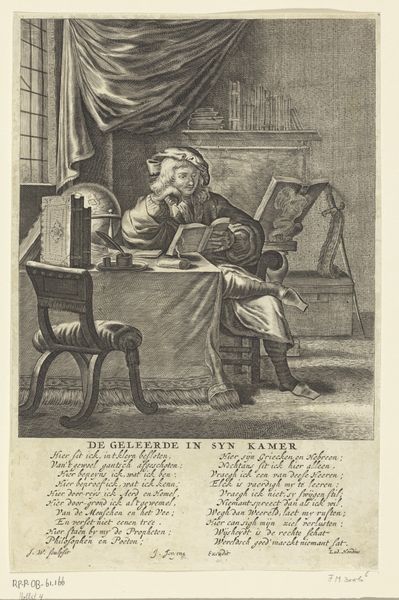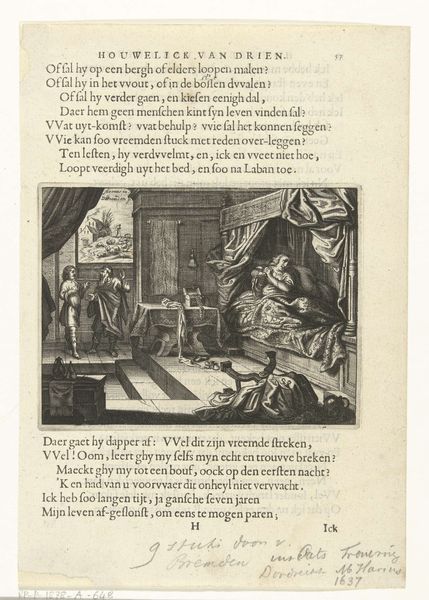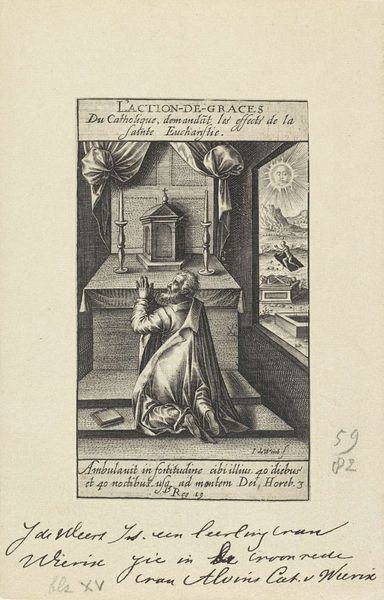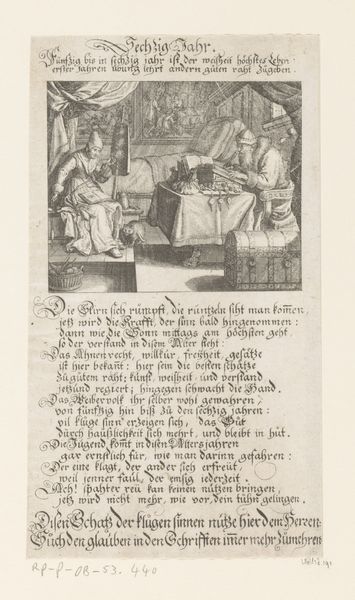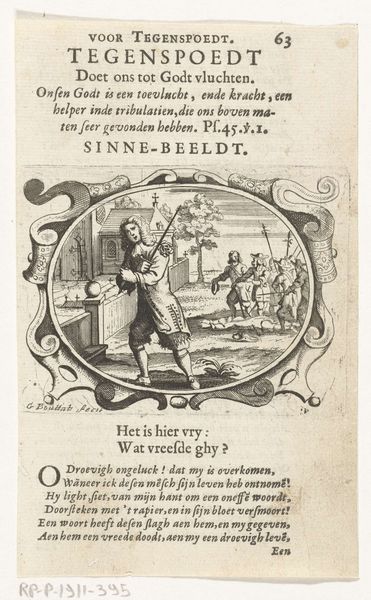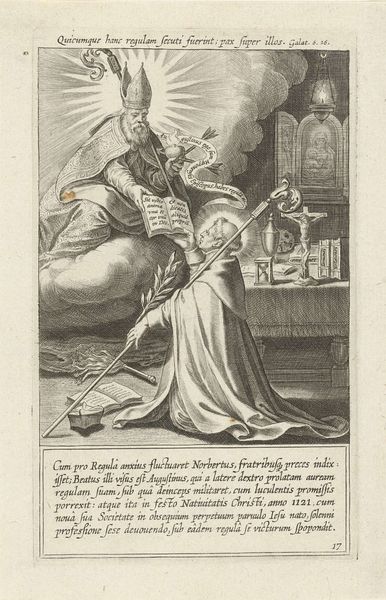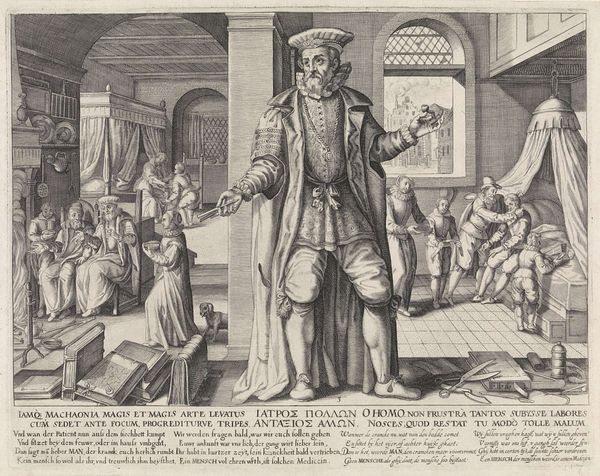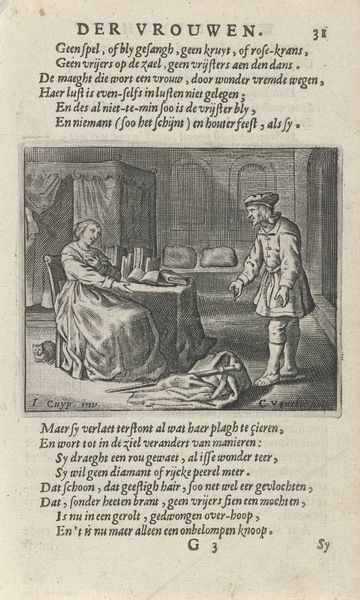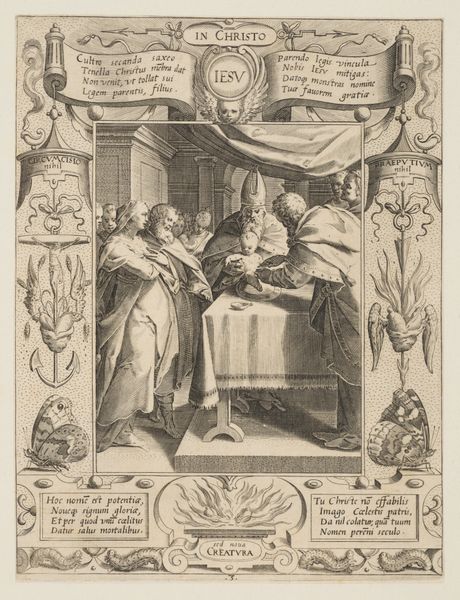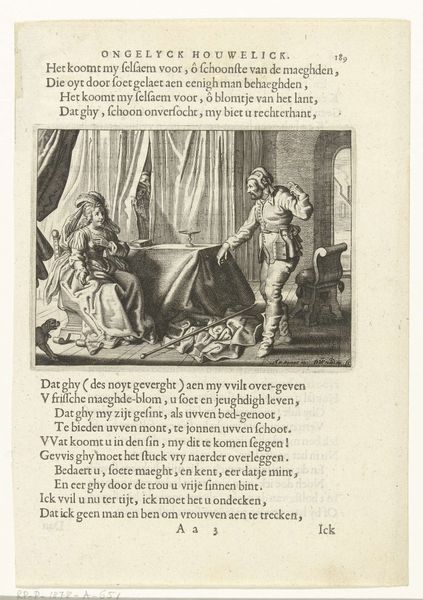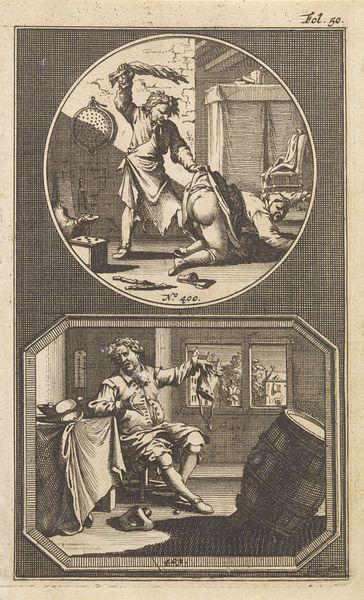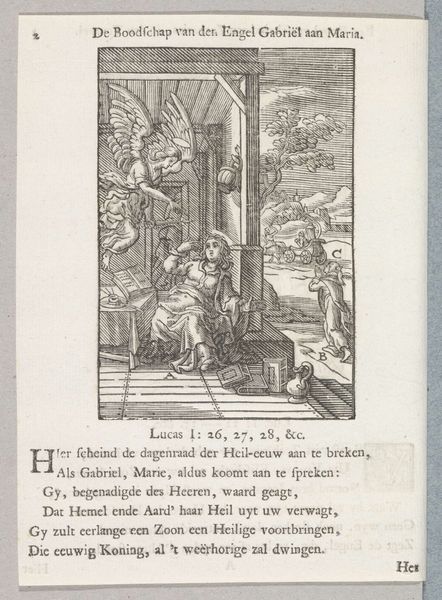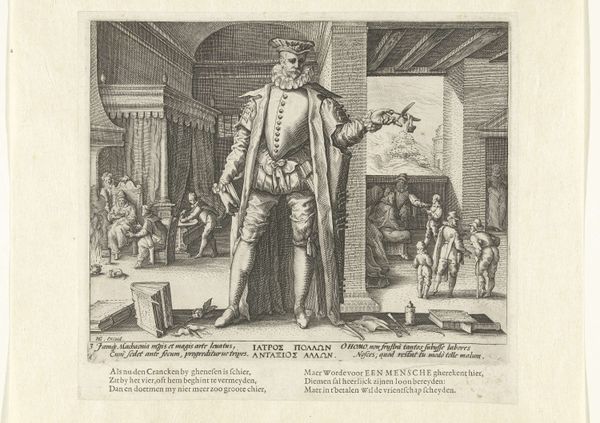
print, engraving
#
portrait
#
narrative-art
# print
#
figuration
#
line
#
genre-painting
#
history-painting
#
northern-renaissance
#
academic-art
#
engraving
Dimensions: height 161 mm, width 176 mm, height 302 mm, width 203 mm
Copyright: Rijks Museum: Open Domain
Curator: This engraving, called "Scholar in his Study," comes to us from somewhere between 1630 and 1659. Editor: My first impression is of complete intellectual isolation. All those books, that cluttered room, it speaks to a mind buried in itself. Curator: Right, we see this sage completely surrounded by the tools and symbols of learning: celestial and terrestrial globes, weighty tomes… a veritable forest of knowledge. Notice, too, the assertive inscription below, basically declaring he learns from the greatest minds, ancient texts... yet sits here completely alone. Editor: The political context is key here. These images were produced in a burgeoning print market catering to a rising merchant class eager for markers of status and learning. Possessing this image declared membership in a learned, humanist circle, despite obvious contradictions. The staging screams learned, wealthy and virtuous. Curator: Absolutely. It's an ideal. And to your point, he claims, in essence, that "worldly goods do not satisfy" but does the artist critique, or confirm the values of wealthy elite? Editor: Ah, but observe the odd composition, the strange collection of objects… The scholar, in his apparent profundity, risks absurdity. Perhaps the engraving slyly critiques the self-importance it seems to celebrate. After all, notice the eagle statue; a symbol of power turned in on itself, perched with a peculiar intensity above the scholar's head. Curator: True, it has this feeling of being overburdened with symbol. Does that add depth, or clutter the message? It feels ambiguous. Editor: The ambiguity is precisely the point. It allowed the image to function on multiple levels for a diverse audience negotiating shifting social codes. Everyone from a common tradesmen to university professor could hang such work at home and still found something there that corresponds with their status. Curator: Well, that's a reminder of the power of images to adapt, shifting with each new reading through time. Editor: Indeed, the scholar's chamber becomes a mirror reflecting its viewers' aspirations and anxieties across generations.
Comments
No comments
Be the first to comment and join the conversation on the ultimate creative platform.
